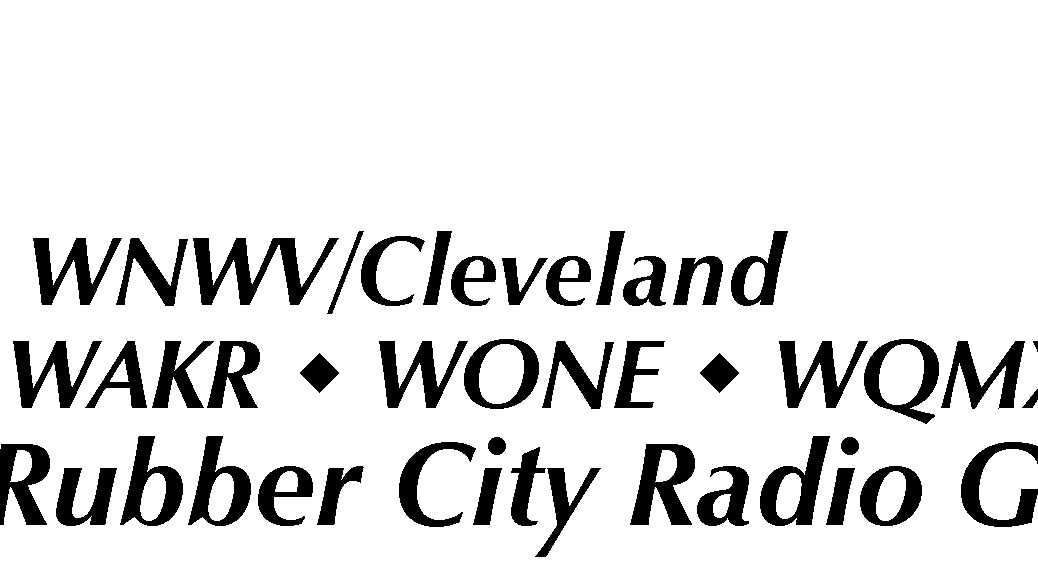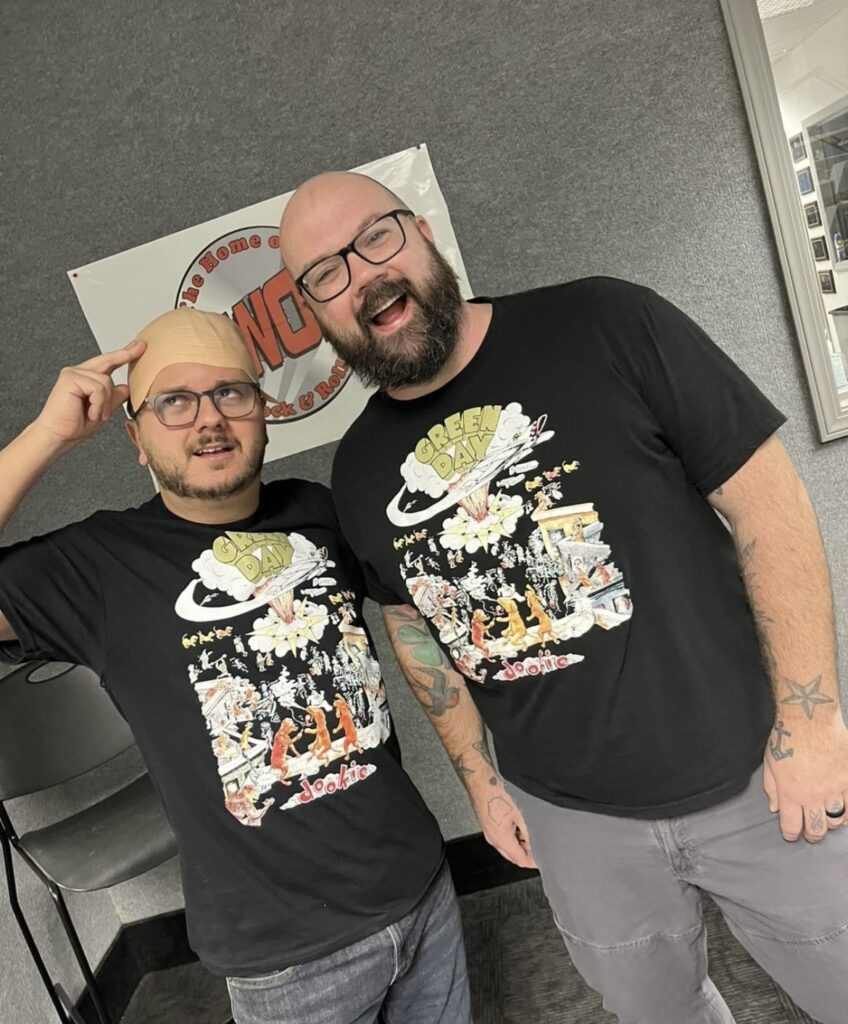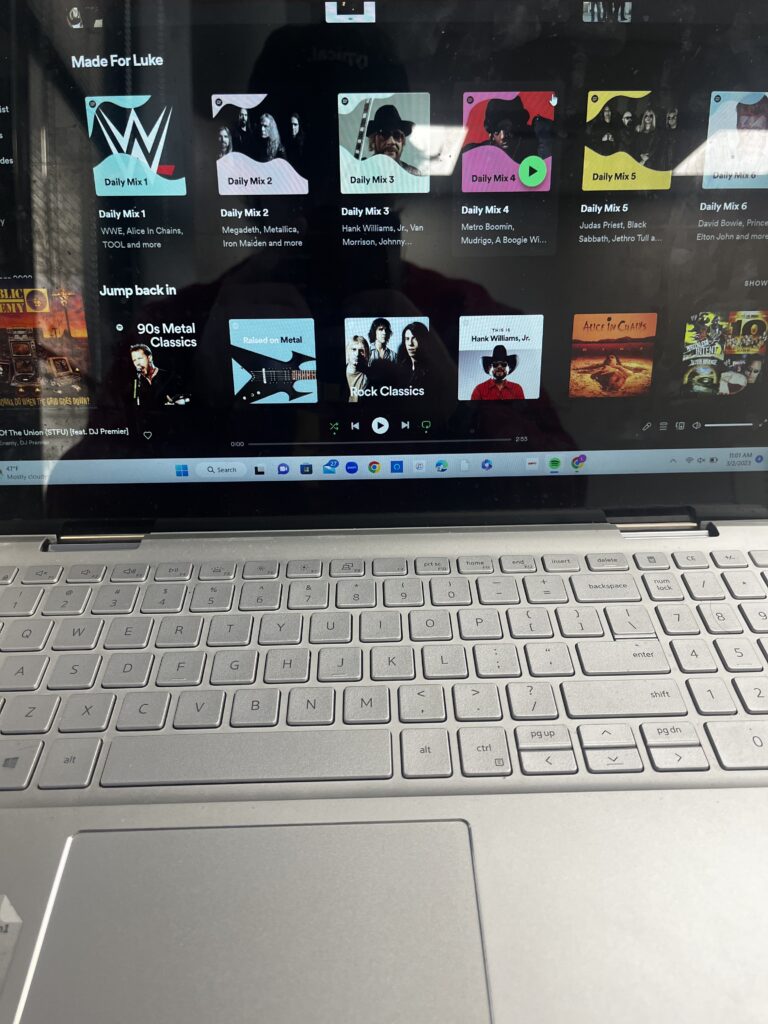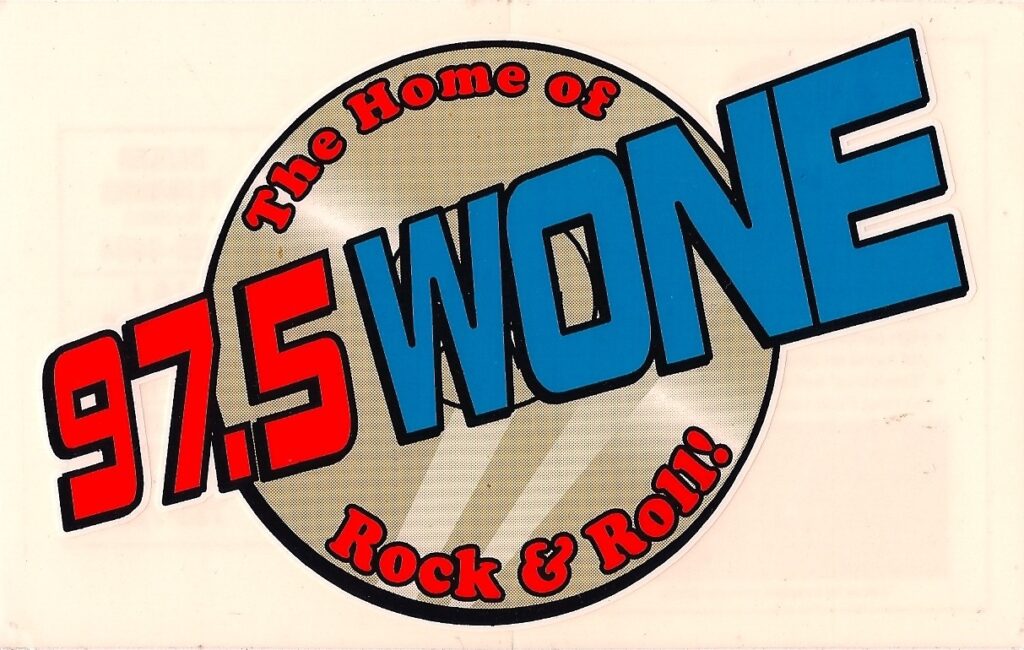
Is Radio Listenership Declining?
The radio has been a main form of entertainment for most Americans for over a century.
Now, it has competition.
With the ever evolving 21st century, we have found new means of entertainment and new ways to listen to the things we want.
“I think that a lot of younger people are tuning into those other formats, the podcasts, Spotify and Apple Music,” says Ryan Lang, radio show host on Akron’s 97.5 WONE.
David Curry from Business of Apps reports that Apple Music surpassed 88 million users in 2022, that number was up 8 million from the previous year while Spotify had 433 million users.
“I think the accessibility would be the reason why it is trending down ,” Lang said. “You can sit and wait for your rock station to play Golden Earring or you can pick up your phone and have Golden Earring right there.”
“It helps me catch up on whatever is going on in the world.”
Cody Palmer, University of Akron Student
For some, the radio is how they get their information on politics, or news for their local area.
“When I first get into the car I’ll listen to the radio for a few minutes.” Akron University student Cody Palmer said. “It helps me catch up on whatever is going on in the world.”
Although with streaming services that you can fit in your pocket, a majority of people still choose to listen to music the “old fashioned way.”
On the national scale, there are about 15,000 radio stations.
Marie Gotting from Statista reports that about 82.5 percent of adults in America still tune into the radio each week.
“In our local Akron area, the ratings have kind of maintained, roughly 86% of people tune in every week to one of our stations,” Lang said.
That number is at about 560,000 listeners between the four stations that Rubber City Radio Group has.
Music isn’t the only reason that the radio can be attractive to people.
Talk shows are a huge part of terrestrial radio, but with Apple and Spotify podcasts and other services, there could be a new format on the rise.
In 2022, Spotify had 32.5 million users of their app to listen to podcasts and that number continues to rise Josh Howarth of Exploding Topics says.
Another form of entertainment is starting to emerge as people’s main choice of radio listening. Satellite radio.
In the third quarter of 2022, Gotting also reported that 34.17 million people tuned into shows by Sirius XM.
As we move into the future, radio stations are going to have to try and adjust to keep up with other services.
“If radio stations played more songs, not the same repetitive ones you always hear, that would make me want to listen more because I could find more music,” Palmer said.
Another reason why people don’t tune in as much as they did is because they aren’t spending as much time in the car.
“I think that if stations could also make some sort of streaming, on demand type app that it would make me want to listen more,” Palmer said.
“We have an app,” Lang said. “You can take us wherever you want to go but we don’t have totally on demand like some of these bigger stations have. We have clips from our shows or podcasts that we put on our website, that’s our on demand.”
To find their app, go to the app store on your device and search “97.5 WONE”.
“It’s pretty terrifying for a guy like me”
Ryan lang
Lang also brought up another reason that radio could be meeting its fate sometime in our lives: artificial intelligence.
Lang explained that he was reading an article about how some companies are trying to develop artificial intelligence into being able to host their own shows.
“It’s pretty terrifying for a guy like me,” he said.
ChatGPT is a software that allows you to put in a prompt and it tells sources from the internet and can give you a full story from it that looks like someone really made it.
It is taking teachers and professors by storm.
There is a cousin to the ChatGPT – RadioGPT.
This system does the same thing by scanning Twitter, Facebook and Instagram along with other outlets to find information, only instead of pumping out a written story, it can act as a DJ.
“A robot can’t go out to Lock 3 in Akron and shake hands with someone who has been listening to the station for 30 years…”
Ryan Lang
The RadioGPT can deliver local news, weather updates and many other things that humans can do as well, only at a cheaper cost.
The only problem is that this robot is not able to deliver the personality of a real human.
“A robot can’t go out to Lock 3 in Akron and shake hands with someone who has been listening to the station for 30 years, Santana is coming to the MGM Northfield Park, a robot can’t get onstage and introduce him.” Lang Said
Despite being a real possibility, there are still things that prevent A.I. from taking over stations.
100 years from now, we may see the end of terrestrial radio, but for now you still can turn up the dial and listen.
“It may be easy to say that radio is trending downwards,” he said. “But if you really look at it, we are doing just fine.”



